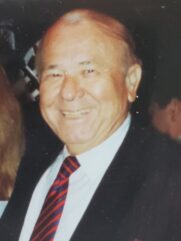
Prize
Turan M Itil Memorial Grant
Prof. Dr. Turan Itil (1924-2014) was one of “the protagonists for the association of EEG change and human behavior” (Max Fink, 2018) as well as a pioneer in the field of pharmaco-EEG. As a great teacher he trained Werner Herrmann, Bernd Saletu, Masami Saito and Sevket Akpinar. He was a founding member of the IPEG society. All his contributions to electrophysiological research still live in the findings of young researchers all over the world up to today since he blazed many trails for the field. To honor his legacy the Itil family decided to fund the Turan Itil Memorial Grant that will be awarded at every biennial IPEG meeting – here for only the best researchers in the field are going to be considered.
Donators
Jury
Winners
Turan M Itil Memorial Grant
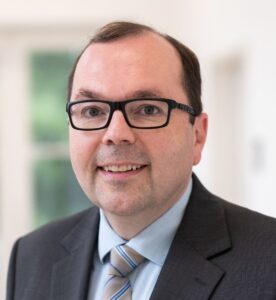
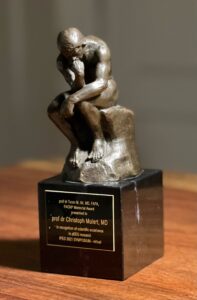
Winner
Amnestic Mild Cognitive Impairment and Mild Cognitive Impairment in Parkinson’s Disease Differ in Brain Dynamics and Topography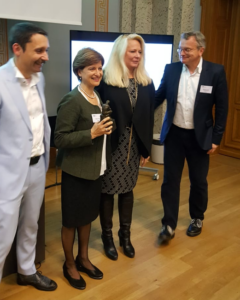
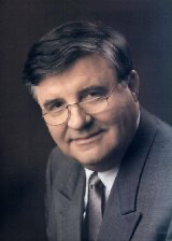
Prize
Prof. Werner M. Herrmann Memorial Grant
The sudden passing of Prof. Werner M. Herrmann in May 2002 was a great shock for his friends, colleagues and for everyone who regarded him as a mentor, a sounding board and a sparring partner.
Werner Herrmann was at the foremost a passionate, dedicated scientist, whose quest for excellence in his field was enhanced by his curiosity, his initiative and his drive. He has made significant contributions to his field through his innumerable publications and lectures and he was one of the founding members in the development of the International Pharmaco EEG Society (IPEG). He also served as the Main Editor, section Pharmacoelectroencephalography of Neuropsychobiology, the official journal of the IPEG.
The Werner Herrmann Memorial Grant has been established by PAREXEL International to encourage research in the field of neuropsychophysiology and to promote the knowledge of recent developments and advanced information of the methodology and applications of neurophysiological research in neuropsychopharmacology. The Grant of 2000 € (two thousand Euro) is offered to the best contribution made by a young researcher at each biennial IPEG Conference.
Donators
Jury
Winners
Werner M. Herrmann Memorial Grant
First Place (Oral)
“Activity-state dependent reversal of ketamine-induced resting state EEG effects by clozapine and naltrexone in the freely moving rat”
Kris Williams – 2nd Place (Oral)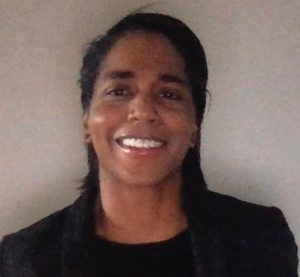
“Quantitative EEG Evaluations of Electrophysiological Biomarkers & Impaired Functional Networks in Older Adults Diagnosed with Dementia”
Čestmír Vejmola – 3d Place (Poster)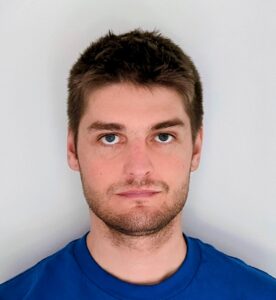
“Effect of psilocin on 40-Hz Auditory Steady State Response in rats”
Winner
“EEG correlates of the effect of psychedelics in rat spectral maps and coherence”
Winner (Oral)
“Glutamatergic deficit and negative symptoms: new evidence from the ketamine model of schizophrenia”
Winner (Poster)
“Is EEG biomarker integration the key to personalized medicine? Evidence from zygosity prediction in twins”
Philippe Jawinski – 2nd Place (Oral) “CACNA1C gene variation is linked to EEG-vigilance regulation”
Winner (Poster)
“The analgesic effect of morphine is reflected by changes in single-sweep evoked brain potentials”
Natalia Jaworska – 2nd Place (Oral)
“Response prediction to antidepressants using alpha power and asymmetry and anterior cingulate cortex theta activity”
Winner (Oral)
“EEG-based assessment of vigilance regulation in major depression and cancer-related fatigue”
Michaela Fujakova – 2nd Place Tie (Poster)
“A comparison of two NMDA antagonists in animal models of psychosis using behavioral and quantitative EEG measures”
Jana Koprivova – 2nd Place Tie (Oral)
“EEG source analysis in obsessive-compulsive disorder”
Winner (Poster)
“Quantitative EEG in glutamatergic and dopaminergic models of psychosis – animal study”
Winner Tie: Michael Kometer (Poster)
“The 5-HT1A/2A Agonist Psilocybin disrupts modal object completion associated with visual hallucinations”
Winner (Oral)
“An EEG symptom provocation study in patients with obsessive compulsive disorder”
Winner Ties: Akinori Hozumi (Poster)
“Effects of levodopa on mid-latency auditory evoked potentials in de novo Parkinson’s disease ”
Martin Brunovsky (Poster)
“qEEG cordance as a predictor of response to antidepressants in patients with resistant depressive disorder”
Winner (Poster)
“Distinctive effects of modafinil and d-amphetamine on the homeostatic and circadian regulation of the human waking EEG”
Mercedes Atienza 2nd Place (Oral)
“Usefulness of pharmacokinetic & pharmacodynamic modeling employing EEG as effect measurement in showing different “in vivo” properties of the benzodiazepine pathways”
Winner (Oral)
“Distinctive effects of modafinil and d-amphetamine on the homeostatic and circadian regulation of the human waking EEG”
2nd Place Tie:
Marta Valle (Oral)
“Usefulness of pharmacokinetic/pharmacodynamic modeling employing EEG as effect measurement in showing different ” in vivo” properties of the benzodiazepine pathways”
Jordin Riba (Oral)
“Effects of alprazolam on human error detection and correction using event-related brain potentials”